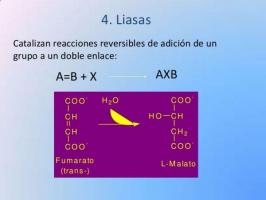Chlorophyll and photosynthetic pigments
In this video I will explain chlorophyll and photosynthetic pigments. The chlorophyll, like other pigments, are molecules of a lipid nature. These molecules absorb light, = electromagnetic radiation, and the color that we see is the light that that pigment cannot absorb.

Pigments they absorb light thanks to conjugated double bonds. c-c = c-c = c
Photosynthesis (light phase): pigment captures photons - gets excited - releases é (radiation or energy).
CHLOROPHYLL:
- Found in all photosynthetic organisms
- It absorbs red, orange-reddish, blue, violet light: They are green because they reflect it.
- Core Mg2 +
- There are two types of chlorophyll. Chlorophyll A is the most abundant (bluish green).
CAROTENOIDS:
- B-carotene
- Branched 5C repeat: isoprenoids
- Absorb blue (400-500nm) - yellow, orange
- Mbr synthesis surrounds chloroplast by isoprenoid pathway.

In the video you will be able to understand better chlorophyll and photosynthetic pigments. In addition, if you are not sure you can continue practicing with problems of this type you can do the
printable exercises with their solutions that I have left you on the web. Good luck in your studies!

